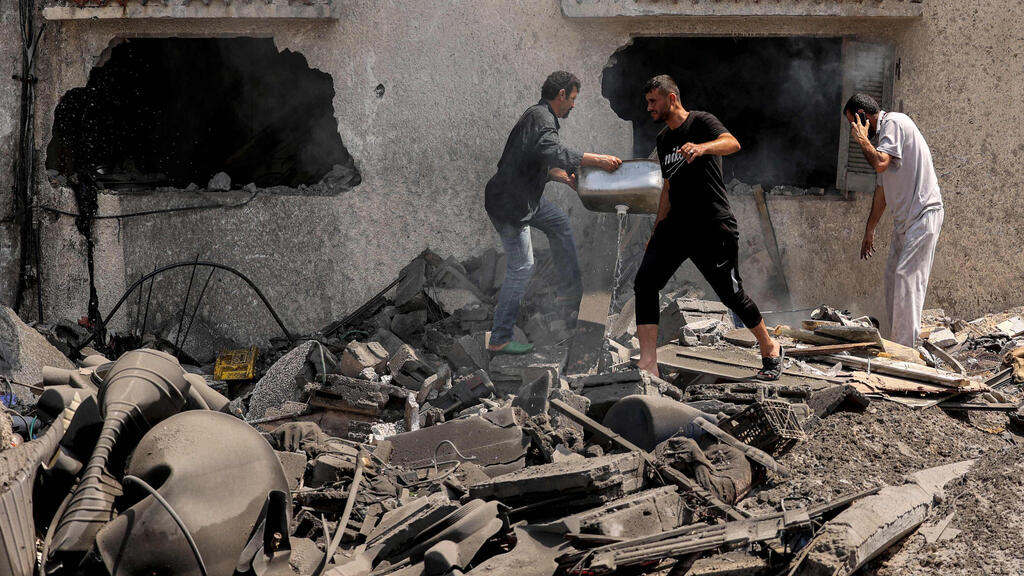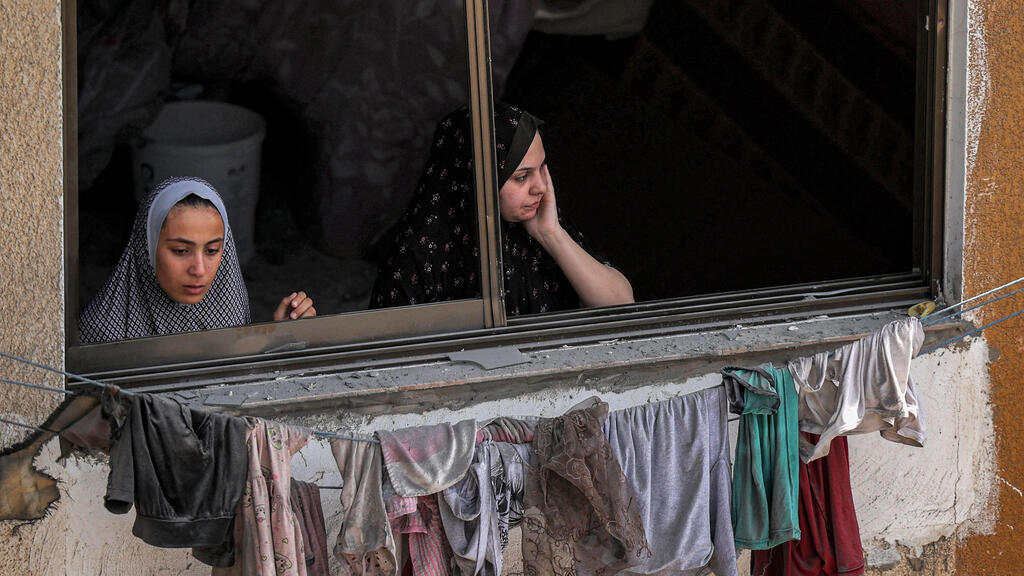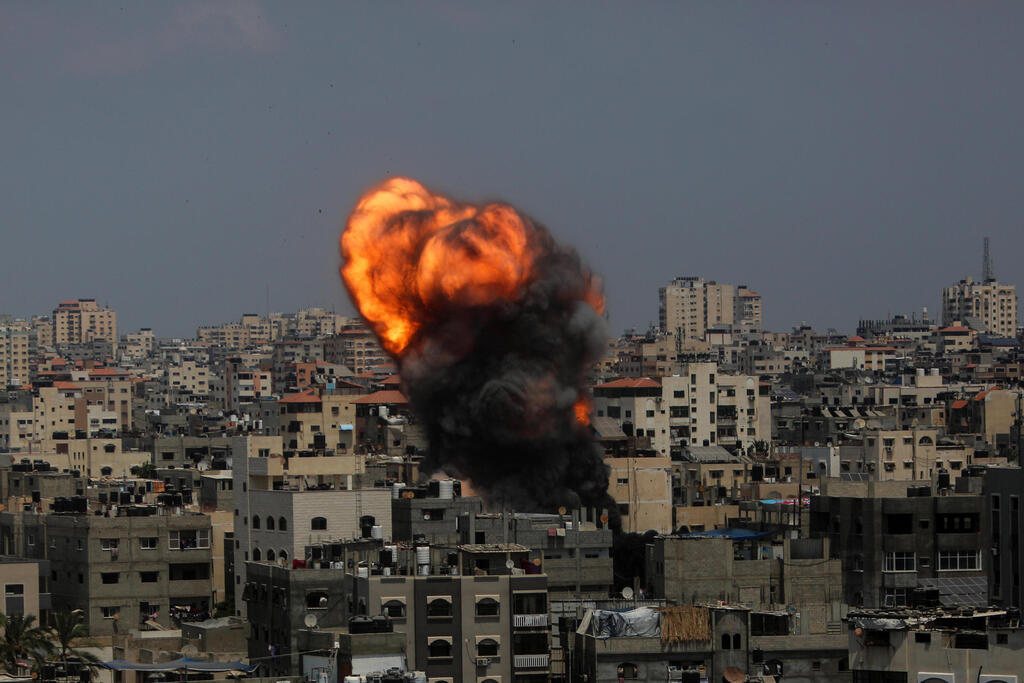IDF's latest operation in Gaza began with an important achievement for Israel, in its offensive action.
The Islamic Jihad which had lost a senior member of its military force, was taken by surprise and impacted so, that it appears unable to inflict major damage on Israel in retaliation.
3 View gallery


Building destroyed in Israeli strike on Gaza, IDF claims was weapons storage
(Photo: AFP)
The military also foiled the group's attempts to launch a mortar attack along the border in response to the arrest earlier in the week, of another senior member – in Jenin.
But a closer look at events, shows Israel was involved in a war it had not wished to see, which reveals problems in its policy towards Gaza.
First of all, the current fighting shows the deterrence security forces claimed was restored in the wake of the May 2021 fighting, was not as strong as was thought.
Israeli leaders acted for the past year, on the assumption that by improving the lives of Gaza residents, who were allowed to cross into the country for work, would be incentive enough to avoid military conflict.
The officials said a round of fighting brought on by one of the Gaza factions, would be met with public protestation, and Hamas would be concerned over losing its grip on the local population. This they said, could lead to the Gaza rulers' conceding to Israeli demands including on the matter of Israeli captives in their hands.
3 View gallery


Gaza residents look out at destruction caused by Israeli attack on Gaza on Saturday
(Photo: AFP)
But no civilian protest has been seen and the Israeli policy of appeasement has provided the expected results.
By announcing that the latest operation was targeting the Islamic Jihad only, Israeli officials contradicted their own policy which saw the Hamas as responsible for any action taken the Palestinian factions in the Strip.
By removing Hamas from the conflict, residents of the south could once again find themselves under rocket fire from "rogue" groups as they had been in previous years.
Hamas is likely not averse to the beating taken by the Islamic Jihad. Any impact on civilian life in the Strip would be temporary the group can position itself on the one hand as part of the Palestinian resistance, while on the other, avoiding harm to its own military capabilities.
Thus far, there has been no reported conflicts between Hamas and the Islamic Jihad and they factions appear publicly to be in sink.
The fighting will likely end with Egyptian mediation within days, Although Cairo's ability to prevent violent clashes, has once again been evident.
Israel must not leave the matter unresolved in a way that will enable the Islamic Jihad and other factions, to cause a security risk in the South, as they have done this week.
An end to the fighting must come with a clear message that the Hamas as the sovereign in the Strip, must control the factions. Past events have shown Hamas is able but not always willing to exert its power.
A failure on the part of the Gaza rulers, must bring Israeli restrictions on workers' permits and the export of goods.
There must be no illusion that Israel's policy will result in long-term calm, but it could place Hamas in a dilemma it has thus far avoided.
It might also bring about a review of Israeli policies over the past year – seen as the most-quiet in decades, until Friday.


